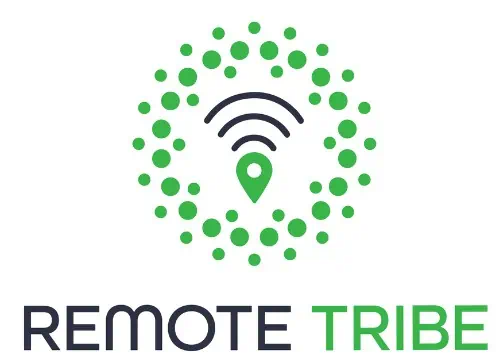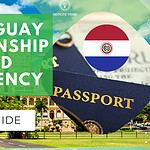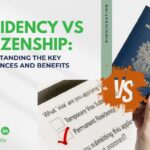An article sponsored by Heavnn , the digital tax optimization solution for nomads
Introduction
Navigating taxes is a crucial aspect of life for digital nomads, especially those considering or already living in Thailand.
This article will explore the essential elements of taxes in Thailand, offering insights into residency rules, income tax rates, filing procedures, tax benefits, and more information important for digital nomads & expats thinking of visiting the country.
Tax Residency in Thailand
A tax resident is an individual or entity that is legally recognized as a resident of a specific country for tax purposes. In Thailand, an individual or entity is considered a tax resident based on the criteria outlined in the Thai Revenue Code. According to Section 41 of the Revenue Code, an individual is deemed a tax resident if they meet any of the following conditions during the tax year:
- They reside in Thailand for an accumulated period of 180 days or more in any given tax year.
- They have an intention to reside in Thailand continuously or have ties indicating their permanent residence in the country.
For entities, tax residency is determined based on their place of incorporation or establishment. An entity incorporated or established under Thai law is considered a tax resident of Thailand.
The rationale behind these criteria is to ensure that individuals and entities contributing to the Thai economy through significant presence or ties are subject to taxation. By defining tax residency based on physical presence or substantial connections to Thailand, the legislation aims to capture income generated within the country’s jurisdiction.
Thailand has entered into tax treaties with various countries, which may modify or provide exceptions to the standard criteria for tax residency. A significant change in 2024 is the new regulation regarding the taxation of foreign-earned income for tax residents. From January 1, 2024, Thai tax residents are required to pay taxes on foreign-earned income brought into Thailand, regardless of when it was earned. This includes pensions, which may be affected by this new regulation. However, if a pension is already taxed in a person’s home country, they might not need to pay Thailand income tax, depending on the double taxation agreements applicable in a concerned case.
In the case of the tax treaty between Thailand and specific countries, the treaty may introduce modifications to the criteria for tax residency. Key provisions within these treaties relate to tax residency for individuals and entities and may provide exceptions to the standard criteria defined in Thailand’s domestic tax laws. For example, the treaty may provide exceptions to the physical presence test or introduce tie-breaker rules to determine tax residency in cases where an individual or entity qualifies as a tax resident of both Thailand and another country.
These modifications aim to provide clarity and consistency in determining tax residency for individuals and entities with connections to both countries.
The rationale behind these treaty-specific modifications or exceptions is to promote certainty, fairness, and efficiency in cross-border taxation. By aligning tax residency criteria and resolving conflicts between domestic laws, tax treaties facilitate international trade, investment, and cooperation while minimizing tax disputes and double taxation.
Personal Income Taxes in Thailand
In Thailand, personal income tax is calculated based on progressive tax rates applied to the taxable income of individuals. The calculation involves the following steps:
Determination of Gross Income: All types of income earned by an individual, including salary, wages, bonuses, rental income, interest income, dividends, and capital gains, are aggregated to calculate the gross income.
Deduction of Allowable Expenses: Certain expenses, such as contributions to the Social Security Fund, Provident Fund, and specific deductible costs, are subtracted from the gross income to arrive at the taxable income.
Application of Tax Rates: The taxable income is then subject to progressive tax rates, where different income thresholds are taxed at progressively higher rates.
Calculation of Tax Liability: The tax liability is determined by applying the applicable tax rates to the taxable income after deductions.
The following table illustrates the applicable tax rates for personal income tax in Thailand:
Taxable Income (THB) | Tax Rate (%) |
0 – 150,000 | 0 |
150,001 – 300,000 | 5 |
300,001 – 500,000 | 10 |
500,001 – 750,000 | 15 |
750,001 – 1,000,000 | 20 |
1,000,001 – 2,000,000 | 25 |
2,000,001 – 5,000,000 | 30 |
Above 5,000,000 | 35 |
Taxable income in Thailand includes all types of income earned by an individual, such as:
- Employment income
- Business income
- Rental income
- Interest income
- Dividend income
- Capital gains
- Other sources of income
Various deductions and allowances may apply to arrive at the taxable income, including deductions for contributions to social security funds, personal allowances, and specific deductible expenses.
Certain types of income are exempt from taxation in Thailand, including:
- Income from government bonds
- Scholarships and grants
- Gifts or inheritances received from close relatives
- Certain allowances or benefits provided by employers, such as housing allowances and medical expenses
These exemptions are specified in the Thai Revenue Code to encourage savings, investments, and social welfare.
Tax Breaks for Expatriates and Digital Nomads in Thailand
Expatriates in Thailand are typically foreign nationals who relocate to Thailand for employment purposes. Thai law requires expats to obtain a work permit if they engage in any form of paid work or business activities within Thailand, regardless of the location of their employer.
Digital nomads, on the other hand, are not explicitly defined in Thai law. However, Thai authorities consider digital nomads who stay in Thailand for an extended period (e.g., several months) and engage in paid work, even if it is for foreign clients, as performing employment activities within the country. This means digital nomads are also required to obtain a work permit to comply with Thai law.
Tax breaks for expatriates and digital nomads in Thailand include:
The Eastern Economic Corridor (EEC)
The EEC is a special economic zone aimed at fostering high-tech industries within the provinces of Chachoengsao, Chonburi, and Rayong. This initiative offers significant tax incentives for foreign experts working in these areas. Foreign experts employed in the EEC zones are fully exempt from personal income tax on their earnings derived from employment within the zone.
The Regional Operating Headquarters (ROH)
The ROH encourages multinational companies to establish their regional headquarters in Thailand. The scheme benefits both the companies and their foreign employees. Foreign employees under the ROH II scheme benefit from a reduced personal income tax rate of 15% for up to 15 years, providing substantial tax savings compared to the standard progressive tax rates.
Non-Resident Taxation
A non-resident is an individual who predominantly resides in one region or jurisdiction but has interests in Thailand. In Thailand, they will be classified by government authorities as a non-tax resident, with all the correlated consequences. Non-residents are subject to a flat 15% tax rate on Thai-sourced income, including salaries, dividends, interest, and rental income.
Double Tax Agreements (DTAs)
Thailand has entered into numerous DTAs with other countries to prevent double taxation and facilitate international trade and investment. Thailand has over 60 double-tax treaties that can provide relief from double taxation. If foreign income has been taxed in the source country, the tax paid can often be credited against Thai tax liabilities, or potentially exempted, depending on the specific treaty provisions.
Effective tax planning is essential for expatriates and digital nomads to make the most of Thailand’s tax breaks. By tailoring your tax strategy to the incentives and regulations, you can achieve significant savings and simplify compliance. Using a solution like Heavnn offers an easy path to save time and money while traveling through Thailand.
Common tax mistakes and penaltie
In Thailand, digital nomads and expats often encounter several tax-related issues that can lead to significant complications if not carefully managed. Here’s an overview of the common pitfalls:
Misunderstanding Residency Rules
Many digital nomads confuse their visa status with their tax residency status. While a visa allows legal stay, it does not determine tax residency. A common mistake is assuming that a tourist visa or other short-term visas exempt one from tax obligations. However, if you spend more than 183 days in Thailand within a calendar year, you are classified as a tax resident, which carries substantial tax implications.
Overlooking Foreign Income
Tax residents in Thailand must report all income, including earnings from abroad. A frequent oversight is misunderstanding what constitutes “remitted” income. Many people are unaware that income earned overseas and transferred into Thailand must also be declared, regardless of whether it has been taxed in another country.
Missing Out on Deductions
Digital nomads are eligible for various work-related deductions, such as those for internet access, software subscriptions, and other business expenses. Failing to claim these deductions can result in a higher tax liability. Many individuals overlook these deductions due to a lack of understanding about what qualifies or how to properly document these expenses.
Errors in Tax Filing
Errors on tax returns, such as incorrect figures or missing documents, can lead to delays and complications. The process of filing an optimized tax return can be complex, often requiring careful attention to detail and a thorough understanding of tax regulations. Mistakes in filing can result in additional scrutiny, penalties, and a prolonged resolution process.
Tax Fraud and Its Consequences
Tax fraud in Thailand encompasses any deliberate action taken to evade tax obligations. This can manifest in several forms:
- Underreporting Income: Deliberately reporting less income than actually earned to reduce the tax liability.
- Overstating Expenses: Inflating business or personal expenses to lower taxable income.
- Falsifying Records: Creating or altering financial documents to conceal true income or expenses.
- Failure to File Tax Returns: Not submitting required tax returns to hide income and avoid paying taxes.
It is crucial to differentiate between illegal tax evasion and tax planning. Tax evasion entails intentional deceit and is against the law, whereas tax planning involves legally reducing tax liabilities through permissible strategies.
The Thai government imposes strict penalties on individuals and entities found guilty of tax fraud to deter such activities and ensure compliance with tax laws. These penalties include:
Fines
Tax fraud can result in significant financial penalties. The fines are often several times the amount of tax evaded. For example, if a person evades 100,000 THB in taxes, they could face a fine of up to 300,000 THB. The exact fine amount can vary based on the severity of the fraud and the amount of tax evaded. Minor offenses may incur smaller fines, while large-scale evasion can lead to much steeper financial penalties.
Imprisonment
Serious tax fraud offenses can result in imprisonment. The length of the sentence depends on the nature and extent of the fraud. For significant cases of intentional tax fraud, sentences can range from several months to several years. High-profile cases, especially those involving substantial amounts of money or long-term fraudulent activities, can lead to imprisonment of up to 5 years.
Confiscation of Assets
In addition to fines and imprisonment, Thai authorities have the power to confiscate assets acquired through fraudulent activities. This measure ensures that individuals cannot benefit from ill-gotten gains.
Asset confiscation serves both as a punitive measure and a deterrent, emphasizing that tax fraud will not lead to financial gain.
Final words
Navigating the labyrinth of tax regulations in Thailand demands more than just a cursory understanding of the rules. For digital nomads and expatriates, this journey is fraught with potential pitfalls that can lead to severe financial and legal consequences. Missteps in determining tax residency, overlooking crucial income declarations, and errors in filing can quickly spiral into significant issues. To navigate these complexities effectively, consider using a specialized tax solution like Heavnn.
Heavnn is a tax optimization platform specifically developed for the needs of location-independent workers (digital nomads, expatriates, slowmads, international corporate workers, and other roamers of the world). With Heavnn, navigating the complexities of global taxation becomes simpler and more efficient, making it an ideal solution for digital nomads and expatriates living or planning to live in Thailand.










